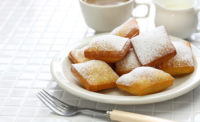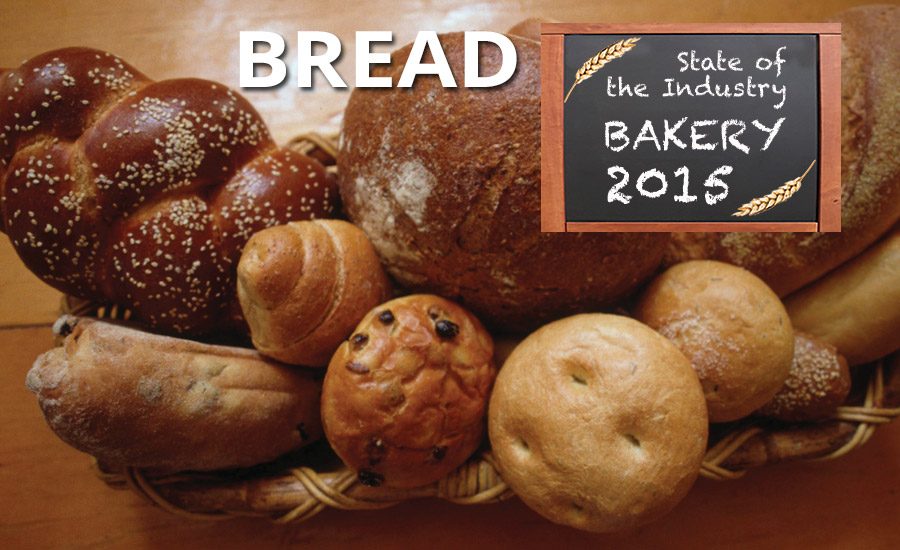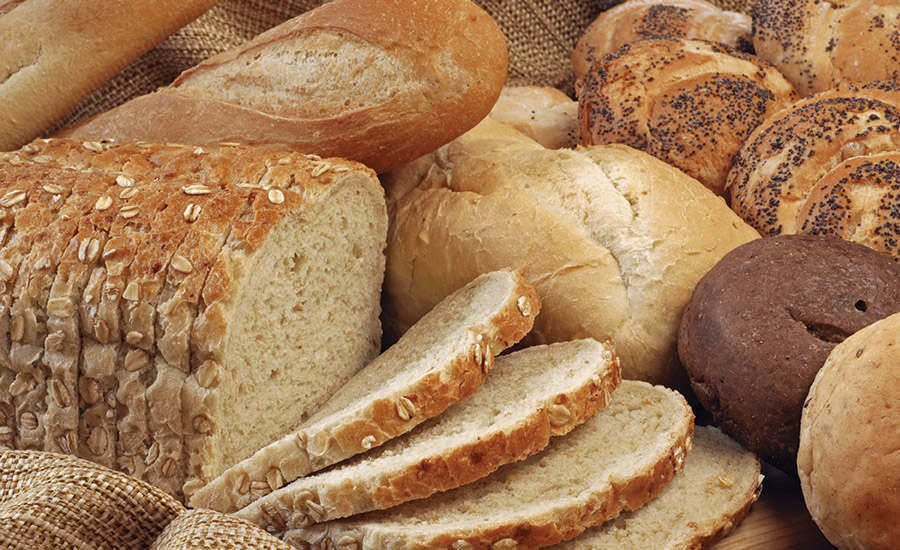Bread Market Update: State of the Industry 2015




courtesy of Koenig Maschinen GmbH














Bread—perhaps the oldest of all prepared foods—is reverently referred to as the “staff of life” for its historical ability to nutritionally support humankind. As a product category, it’s remarkably mature, with traditional bread products forming the primary basis of revenue for major bakeries in the U.S.
Overview | Bread | Tortillas | Sweet Goods | Snack Cakes | Pizza | Desserts | Cookies | Buns & Rolls | Bars
Nevertheless, change is afoot in bread—including product areas like loaf breads, bagels and English muffins—as bakeries simplify labels, branch into gluten-free and other specialized segments, and increasingly take note of the promise of artisan ideals and the resonance they can hold with today’s evolving shopper dynamics.
Market data
Overall, the fresh bread and rolls category was essentially flat over the past year, with a slight 0.16 percent decline in dollar sales to $13.7 billion for the 52 weeks ending April 19, 2015, per IRI, Chicago. While private label still leads the fresh bread segment, with $2.1 billion in sales, it saw a decline of 3.92 percent in dollar sales for the period. Meanwhile, Flowers Foods saw sales revenue increase by 4.93 percent, with its Nature’s Own brand responsible for $841.7 million in sales, more than twice double the sales of the next leading brand, Bimbo Bakeries’ Brownberry, at $363.3 million.
The bagels segment rose slightly by 1.61 percent in dollar sales to $858.1 million. The English muffins category likewise saw gains, up 4.45 percent in dollar sales to $708.9 million. In both segments, the Bimbo Bakeries USA brand Thomas’ leads the pack, up 7.63 percent in dollars sales to $427.9 million for bagels, and up 7.13 percent in dollar sales to $539.8 million for English muffins. In both segments, private label is a distant second. In bagels, the Thomas’ brand dominates, taking three out of the five top brand spots.
Looking back
The No. 1 bread brand in the U.S.—after private label—is Nature’s Own from Flowers Foods. The “soft variety” line includes a wide range of products, including Honey Oat, 100% Whole Grain, 100% Whole Wheat, Honey Wheat, Honey 7 Grain, Whole Grain Sugar Free, Double Fiber and 100% Whole Wheat with Honey. In its “white breads” line, products include Butterbread, Whitewheat and 40 Calorie White; other calorie-controlled products include 40 Calorie 9 Grain, 40 Calorie Honey Wheat and 40 Calorie Wheat. “Premium specialty loafs,” with larger slices than standard soft variety products, include 100% Whole Grain, 12 Grain, Multi-Grain, 100% Whole Wheat, Honey Wheat and Double Fiber.
Big news at Flowers Foods is its recent announcement that it is reportedly in the process of reformulating the Nature’s Own brand to reduce the number of ingredients in the line to 14 from 26. The Nature’s Own website also prominently notes that none of its products include the whitening agent and dough conditioner azodicarbonamide (ADA)—an ingredient that has gained notoriety of late.
Wonder bread, from Flowers Foods, sits at the No. 10 spot in brand rankings, and was up 217.26 percent in dollar sales for the year. In addition to Classic White, Wonder is now available in Whole Wheat and Whole Grain White.
Bimbo Bakeries USA brand Thomas’ is synonymous with bagels, dominating the segment. Its traditional bagels are the No. 1 brand, with Bagel Thins at No. 4 slot and Hearty Grains at No. 5. Bagel Thins have been on the market for a few years now, and the calorie-controlled products—at 110 calories per serving—are available in Plain, 100% Whole Wheat, Cinnamon Raisin and Everything. But Bagel Thins were down 4.39 percent in dollar sales, while Hearty Grains dropped 11.81 percent.
It should come as no surprise that gluten-free paced nicely over the past year. Udi’s Healthy Foods’ bagel line—available in Whole Grain, Plain, Cinnamon Raisin, Mighty and Everything Inside—was up for the 52-week period, with an increase of 17.12 percent in dollar sales to $12.0 million. Udi’s Mighty Bagel product includes sunflower seeds, dried cranberries, millet seed, flax seed, whole quinoa flour, pumpkin seeds and pea protein, delivering 8 grams of protein and 3 grams of fiber per serving. The company’s Everything Inside bagel takes a similar approach, incorporating ingredients traditionally applied topically—millet seed, flax seed, poppy seeds, dehydrated onion and dehydrated garlic—into the overall dough mix.
Although the Bimbo Bakeries USA brand Thomas’ is far and away the leader in English muffins, with 76.14 percent dollar share, several minor brands saw notable gains over the past year, with Food for Life Baking Co.’s Ezekiel 4:9 English muffins up 21.55 percent in dollar sales, and Vermont Bread Co.’s organic and natural English muffins up 52.31 percent in dollar sales, per IRI. Food for Life offers several two Ezekiel 4:9 English muffin products: Cinnamon Raisin Sprouted Whole Grain and regular Sprouted Whole Grain, both of which are certified-organic.
Looking forward
“The bread category is as simple as it is complex,” says Marge O’Brien, senior global market insights manager, Corbion, Lenexa, KS. “As we have seen with the various diet trends over the years, consumers love bread, but struggle with carbs, resulting in a love-hate relationship.” She notes company research has found that heavy bread users skew toward experimentation and look for new and interesting products. “However, as new products emerge, the one constant from consumers is the demand for high quality and fresh product,” she adds. “These two attributes are just the tip of the iceberg, and companies that are successful are those that dive down to understand what quality and freshness mean to their consumers.” She notes that enzyme blends designed to give extended shelf life, increased bread strength and resiliency, and excellent eating qualities can help meet this demand in new products.
Another product characteristic more shoppers align with quality is a clean label. The decision by Flowers Foods to reformulate its category-leading Nature’s Own bread brand stands as an unequivocal clarion call that clean label is the new normal for the bread category.
Eric Riggle, vice president, Rademaker USA, Hudson, OH, notes that in addition to clean label, he’s seeing more artisan breads trend-forward, products that require longer prefermentation time than traditional products, along with a higher absorption level. “These are challenging doughs to process due to the combination of the prefermentation, higher absorption and clean label,” he says, noting that bakers cannot stress these doughs or punish them with conventional bread equipment. “The trend will continue toward these higher-quality breads. Artisan will continue to be automated and industrialized to provide this high-quality bread on a nationwide scale versus regionally.”
Bakers can produce higher-absorption doughs with low-stress sheeting systems, notes Riggle, suggesting them for ciabatta, baguettes, bâtards, boules, focaccia and barra rustica.
Julia Kneidinger, marketing, Koenig Maschinen GmbH, Graz, Austria, points to “artisanal, high-quality bread products” as a prevailing trend in bread today. She also suggests “lifestyle bread—e.g., protein bread and breads with vegetables” will continue to see increasing demand, along with gluten-free, whole-grain and rye breads.
As bakeries consider adding new equipment, Kneidinger suggests they take the need for weight accuracy and hygienic design into consideration, all with a nod to automation. “There are less skilled workers in bakeries,” she says. “Therefore, there’s higher demand for automatic bread lines.”
Larry Gore, director, sales and marketing, AMF Bakery Systems, Richmond, VA, notes that bakeries are often building in more production flexibility via hybrid lines that can produce loaf breads on conventional production lines, but can also switch to integrated sheeting for an entirely different group of products, such as baguettes.
While tradition will likely continue to maintain strong appeal across the breads segment, those favorites will likely see cleaner labels and increased competition as artisan and other specialty product areas continue to gain a foothold.
Overview | Bread | Tortillas | Sweet Goods | Snack Cakes | Pizza | Desserts | Cookies | Buns & Rolls | Bars
Looking for a reprint of this article?
From high-res PDFs to custom plaques, order your copy today!















